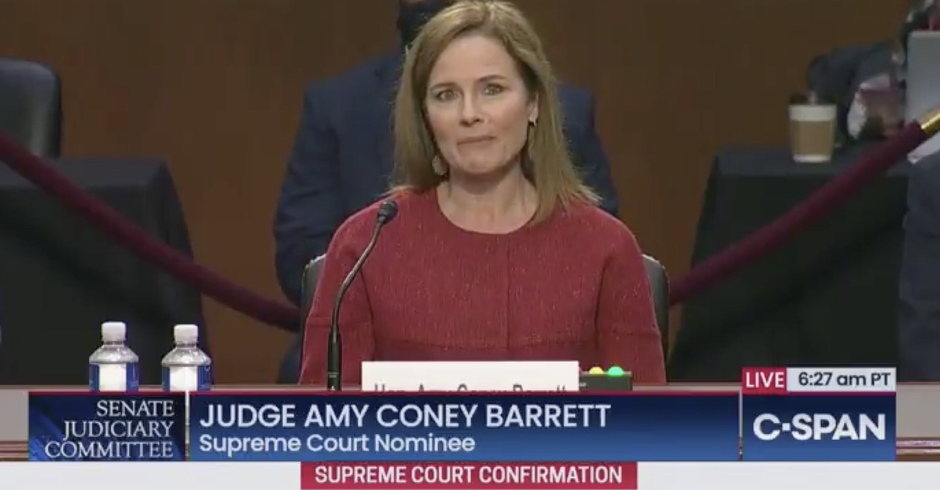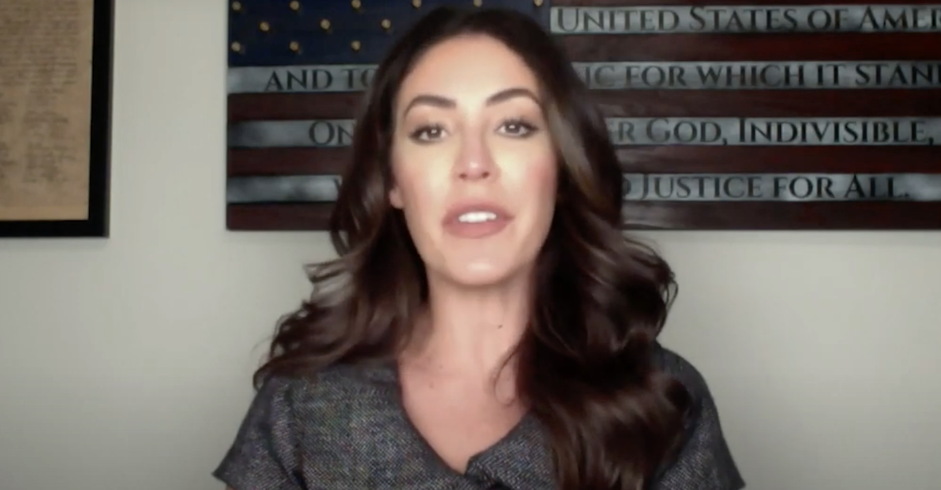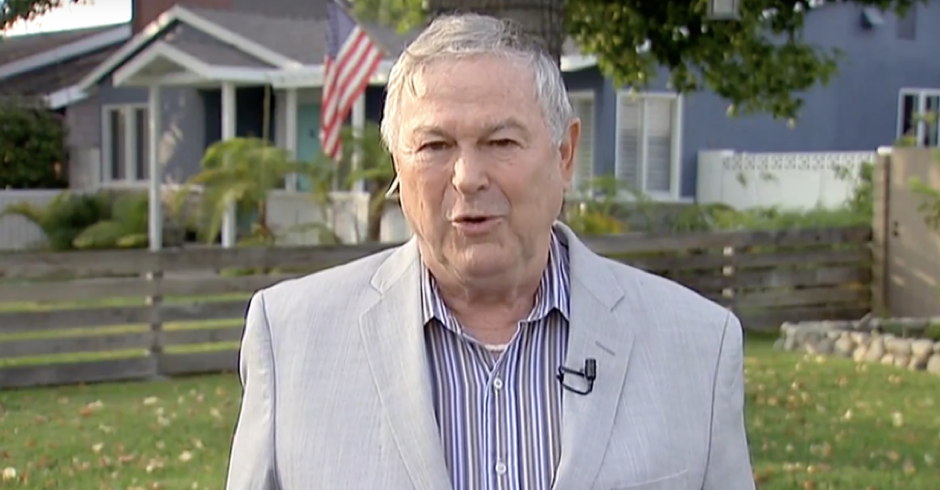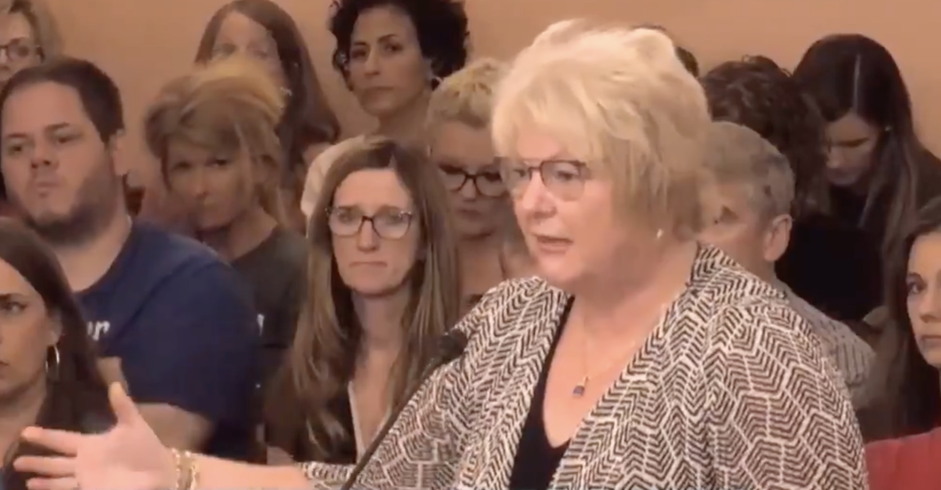RIGHT WING EXTREMISTS
Amy Coney Barrett Blasted for Use of ‘Sexual Preference’: A ‘Dogwhistle’ Used ‘By Anti-Gay Activists’

Judge Amy Coney Barrett’s responses during the first day of questioning in her Supreme Court confirmation hearing are being highly criticized. In just the first hour of questioning, Coney Barrett refused to tell Senators if she would overturn the Affordable Care Act, a woman’s right to abortion, or same-sex marriage.
But it was her responses to a question about discrimination that led many to express outrage.
Coney Barrett insisted she has never discriminated against LGBTQ people based on “sexual preference.”
The phrase itself is offensive to LGBTQ people. Aside from being outdated, and demonstrating Judge Coney Barrett’s views are antiquated, it is a term that makes clear those who use it believe being LGBTQ is a choice.
“The term ‘sexual preference’ is typically used to suggest that being lesbian, gay or bisexual is a choice and therefore can and should be ‘cured,'” according to GLAAD. “Sexual orientation is the accurate description of an individual’s enduring physical, romantic and/or emotional attraction to members of the same and/or opposite sex and is inclusive of lesbians, gay men, bisexuals, as well as straight men and women.”
And as attorney and author Jill Filipovic notes, Judge Coney Barrett indeed has discriminated based on “sexual preference.”
“I have never discriminated on the basis of sexual preference and would never discriminate on the basis of sexual preference.” This is actually false: Barrett sat on the board of a school that refused to accept the children of same-sex couples. https://t.co/cHP7E92eh9
— Jill Filipovic (@JillFilipovic) October 13, 2020
Attorneys Mark Joseph Stern and Sasha Samberg-Champion both link Judge Coney Barrett’s use of the offensive term to her ties to the anti-LGBTQ hate group Alliance Defending Freedom (ADF).
Right: “Sexual preference” the kind of language used by Alliance Defending Freedom, a law firm that opposes equal rights for LGBTQ people (including basic non-discrimination protections) and supports the criminalization of homosexuality.
It’s frightening to hear Barrett use it. https://t.co/BhMlDm1EAs
— Mark Joseph Stern (@mjs_DC) October 13, 2020
Journalist Michelangelo Signorile sums up the case perfectly:
Barrett used the term “sexual preference,” the big tell that she believes homosexuality is a “choice.”
Which means she believes it can be changed/decided otherwise.
Which means she believes in conversion therapy.
Which certainly means she doesn’t recognize marriage equality.
— Michelangelo Signorile, subscribe to my newsletter (@MSignorile) October 13, 2020
Here’s how many are responding to Coney Barrett’s offensive remarks:
ACB using the phrase “sexual preference” is telling on herself.
— Anthony 🎃 169 A.D.2d 254 (1991) 👻 Kreis (@AnthonyMKreis) October 13, 2020
“Sexual preference,” a term used by Justice Barrett, is offensive and outdated. The term implies sexuality is a choice. It is not. News organizations should not repeat Justice Barrett’s words without providing that important context.
— Kyle Griffin (@kylegriffin1) October 13, 2020
I know the phrase “sexual preference” was common in the old days, but LGBTQ people almost never use it today, for good reason: It suggests sexuality is a “preference” that can be changed. Today it’s more often used by anti-gay activists.
I am alarmed that Barrett said it.
— Mark Joseph Stern (@mjs_DC) October 13, 2020
Saying that you have never discriminated against someone because of their “sexual preference” is a sure fire way for others to know you discriminate against people because of their sexual orientation.
— Guy Cecil (@guycecil) October 13, 2020
IMPORTANT:
Barrett used “sexual preference” (not “sexual orientation”) when discussing her views on marriage equality.
This is a dogwhistle. The term “sexual preference” is used by opponents of equality to suggest that being #LGBTQ is a choice.#BlockBarrett #SCOTUSHearing pic.twitter.com/kkftq9l2l5
— Lambda Legal (@LambdaLegal) October 13, 2020
I know the phrase “sexual preference” was common in the old days, but LGBTQ people almost never use it today, for good reason: It suggests sexuality is a “preference” that can be changed. Today it’s more often used by anti-gay activists.
I am alarmed that Barrett said it.
— Mark Joseph Stern (@mjs_DC) October 13, 2020
It’s not a sexual “preference,” Judge Barrett. A preference is something you choose. I’ll give you and example: “I have a preference for non-radical, non-fundamentalist justices on the Supreme Court.” Are we clear?
— George Takei (@GeorgeTakei) October 13, 2020
It’s also a tell that she uses the term “sexual preference,” as if being gay, lesbian or bisexual were merely one’s whim and not one’s orientation. Again, an important tell — and one that suggests she does not, in fact, plan to treat the LGBT community fairly.
— Jill Filipovic (@JillFilipovic) October 13, 2020
The people who use “sexual preference” do it purposely so they can justify discriminating against people for their sexual orientation. https://t.co/YqUbVyhrLf
— LOLGOP (@LOLGOP) October 13, 2020
Here’s a thing that ended some time ago: this concept of “sexual preference.”
It seems that public officials, including politicians, appointees, and judges, should know that.
It also seems that the concept of “sexual orientation” is not hard math.
It’s not a “preference.”— Todd Breasseale (@TBreassealeDHS) October 13, 2020
Barrett is only 47 so for most of her adult life and professional care, it’s been established that the use of “sexual preference” is wrong. She must live in a very enclosed – and homophobic – bubble to use the term. Only the hard core haters have to stuck with it
— Joe Sudbay (@JoeSudbay) October 13, 2020
Enjoy this piece?
… then let us make a small request. The New Civil Rights Movement depends on readers like you to meet our ongoing expenses and continue producing quality progressive journalism. Three Silicon Valley giants consume 70 percent of all online advertising dollars, so we need your help to continue doing what we do.
NCRM is independent. You won’t find mainstream media bias here. From unflinching coverage of religious extremism, to spotlighting efforts to roll back our rights, NCRM continues to speak truth to power. America needs independent voices like NCRM to be sure no one is forgotten.
Every reader contribution, whatever the amount, makes a tremendous difference. Help ensure NCRM remains independent long into the future. Support progressive journalism with a one-time contribution to NCRM, or click here to become a subscriber. Thank you. Click here to donate by check.
 |

























